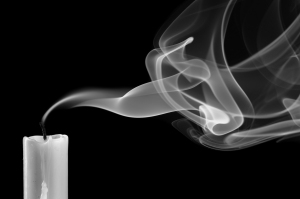 What do the following have in common: cheese, butter, coffee and oral sex? If you’re a science journalist you’ll probably know. The answer: they’ve all been ‘linked’ to cancer. The word ‘link’ is contentious at best.
What do the following have in common: cheese, butter, coffee and oral sex? If you’re a science journalist you’ll probably know. The answer: they’ve all been ‘linked’ to cancer. The word ‘link’ is contentious at best.
The list is by no means complete. It’s a long one and includes such gems as air fresheners, bras, hot dogs, talcum powder, and…well, Ross Pomeroy, the author the blog Real Clear Science, has attempted to track them all down.
I was reminded of this because of two recents events, coincidentally linked. The first was the Mail & Guardian’s decision to drop its science desk as part of a series of retrenchments in the face of a cashflow crisis. I learned about this – the day before it happened – when chatting with the title’s (now former) science editor, the award-winning journalist Sarah Wild. It couldn’t have come at a more absurd time – Sarah has just published a book that champions the work of South African scientists, expertly putting science into context for ordinary South Africans.
The second was a piece in the Daily Maverick by one of the few journalists still bothering with employing an investigative eye – Ivo Vegter.
Ivo’s point, and it’s an oft-ignored one, is that science doesn’t know everything (if it did it would stop), and that it’s not so much a repository for knowledge as a process for learning about our natural world. More importantly science acknowledges this (as opposed to religions that claim to know the absolute truth), and so it’s quite comfortable with making mistakes along the way – after all, as I’m sure your mother told you, ‘we learn by our mistakes’.
Now this wouldn’t be the problem if more people knew this when reading the paper or going online. Instead they’ll read a ‘science story’ and just believe it, because a) it’s in the news, and b), well, it’s science.
Editors know this, which is why they like ‘science stories’ that ‘link’ something everyone fears (cancer) with something that everyone consumes or does (coffee…sex…etc.). It’s also why science journalists – real science journalists, not inexperienced journalists given a science ‘beat’ – are sorely needed. They can expertly cut through the research clutter and correct the claims (the ‘links’) editors want to make. That’s how they get in the way of tabloid content dressed up as ‘science’, and why they’re often the first to go in any title’s shake-up.
But in South Africa there’s an added reason why science journalists are needed, but paradoxically not: We’re a nation that still believes in spirits, ‘throwing bones’ to diagnose maladies, and that a man who calls himself ‘Doctor’ can help you win the lottery while making your penis bigger. This would be quaint if it weren’t culturally protected under the title ‘traditional healing’. So any journalist that forces uncomfortable questions about the merits of cultural claims, is, in such a politically and culturally sensitive media environment, bound to get in the way.
The Mail & Guardian’s decision to drop the science desk – claiming the decision is a purely economic one – risks dragging the country deeper into ignorance; and that’s not only short-sighted, it’s wholly irresponsible.


Nice one, Daryl! This pic need a mirror though…. (quiet giggle)
Regards
Allison Alan-Brown General Manager | B A Sound Studio Work Shop cc +27 31 3034457 | +27 83 2701726 | sales@basound.co.za http://www.basound.co.za | Skype: allison.alan.brown https://www.facebook.com/BASoundStudioWorkShop 103 Smiso Nkwanyana Road, Morningside, Durban
>